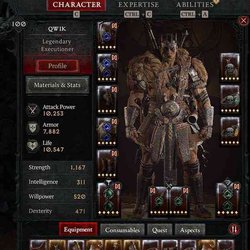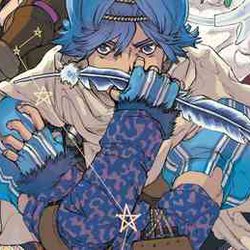Greetings!Summer is upon us, and with Fate of Iberia and the 1.6.1 update(s) (note: another small fix update will be released this week), we feel confident that the game is in a good place where it can be enjoyed over the break!
(As always, keep those reports up if you find an issue) Soon we’ll all be out enjoying the beautiful Swedish summer, taking some well-deserved rest, and recharging for the time ahead! ► Read our As mentioned in Dev Diary 100, we have big and small plans, some of which will be revealed later this year.
We’re very excited to see what you think, but we can’t say anything yet!From this point onwards we will not have any regularly scheduled Dev Diaries until we’re all back! There may be a small dev diary here and there, but no promises.
We’ll be back before the end of August.If you want to keep discussing the game over the break, head over to our Discord. Also, note that we’ll have videos every Wednesday and Friday throughout the summer, mostly of the DevClash that wrapped up recently.Before we leave you for the summer, did you know that we added several historical figures that can appear under the right circumstances?
Here’s an overview written by Ola, known as Vaniljkaka on our forums! Abbas ibn Firnas (~810-887), known in Latin as Armen Firman, was an Andalusian polymath.
Sources claim that he made an attempt at flight by jumping from a tower in Córdoba clad in a loose cloak stiffened with wooden struts. For this, he got immortalized, and now has a statue outside Baghdad’s airport.
Though Ibn Firnas would be alive in our 867 bookmark, you’ll only encounter him if the right event fires. al-Zahrawi (936–1013), known as Albucasis in Latin, was one of the greatest surgeons of the Middle Ages, and court physician to the caliph in Córdoba.
If you manage to encounter him in the game (you’ll need some luck for this, and an event about medicine…), he’ll even tell you an anecdote from his career. Ibn al-Wafid (997 – 1074), known as Abenguefith in Latin, was a pharmacist and agronomist in Toledo in the middle of the 11th century.
Historical sources claim that he was a pupil of al-Zahrawi, but this seems improbable, as al-Zahrawi died before 1013. Ibn al-Wafid is a great court physician if you play emir Yahya in the Rags to Riches bookmark.
Al-Zarkali (1029-1100), known in Latin as Arzachel, was a craftsman and astronomer based in Toledo. He fled the city when Castille conquered it in 1085.
His work formed part of the basis for the Toledan Tables, a set of astronomical tables that were later translated into Latin by Gerard of Cremona. He is in the court of Toledo in the 1066 start.
Joseph ibn Nagrela (1035-1066), also known as Joseph ha-Nagid, was vizier to the incompetent, alcoholic emir Badis of Granada. Ibn Nagrela belonged to a prominent lineage of Sephardic Jews; his father Samuel was a famous scholar, warrior, and poet.
Ibn Nagrela was the chief victim of the Granada Massacre in December 1066, crucified by an angry mob for supposedly trying to usurp the throne. However, our game begins in January 1066, so perhaps he will fare better in this history… Ibn Zuhr (1094-1162), known in Latin as Avenzoar, was a physician and poet, who seems to have had a dramatic fallout with one of his employers, the Almoravid ruler.
This fallout was very much the inspiration for one of the events in Struggle for Iberia… Ibn Tufail (1105 – 1185), known in Latin as Abubacer Aben Tofail, was a physician, novelist, and astronomer, among other things. He was quite keen on autopsies, as you’ll notice if you encounter him, which will require the right event at the right time.
Gerard of Cremona (~1114-1187) was an Italian translator of scientific books from Arabic into Latin, active in the kingdom of Castille. After the fall of Toledo, his work was instrumental in making Arabic knowledge available to the Western European intellectual sphere, ushering in the “Renaissance of the Twelfth Century”.
Gerard can be encountered if you get an appropriate event during the years when he was active - make sure that conciliation is the prevailing mood in Iberia! Ibn Rushd (1126-1198), known in Latin as Averroes, was a polymath and jurist and one of the most influential intellectuals of the Middle Ages, with a whole school of thought, averroism, that bears his name.
In his youth, he seems to have been a pupil of both Ibn Zuhr and Ibn Tufail. There seem to be claims that he experimented with flight, just like ibn Firnas.
Though he is very famous, he lived after our game’s current bookmark dates, and you’ll only encounter him with a bit of luck through an event in the right time period… Qasmuna (11th-12th century) was a female Sephardi poet. Some of her poems are preserved, but little is known of her life.
However, there is a theory that she was the sister of Joseph ibn Nagrela. I chose to go with this, since it made their family tree more interesting and allowed us to include her in the game.
You’ll likely find her with her brother in the court of Granada.We are excited to come back refreshed and relaxed after vacation, and resume working on the game that we all know and love! Until August, goodbye!




















0 Comments:
Leave a Reply